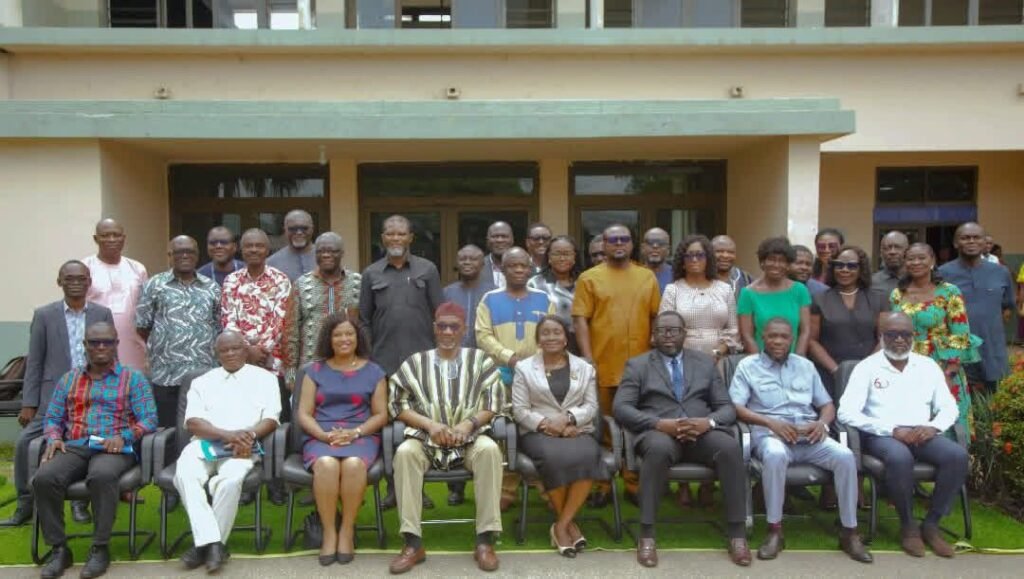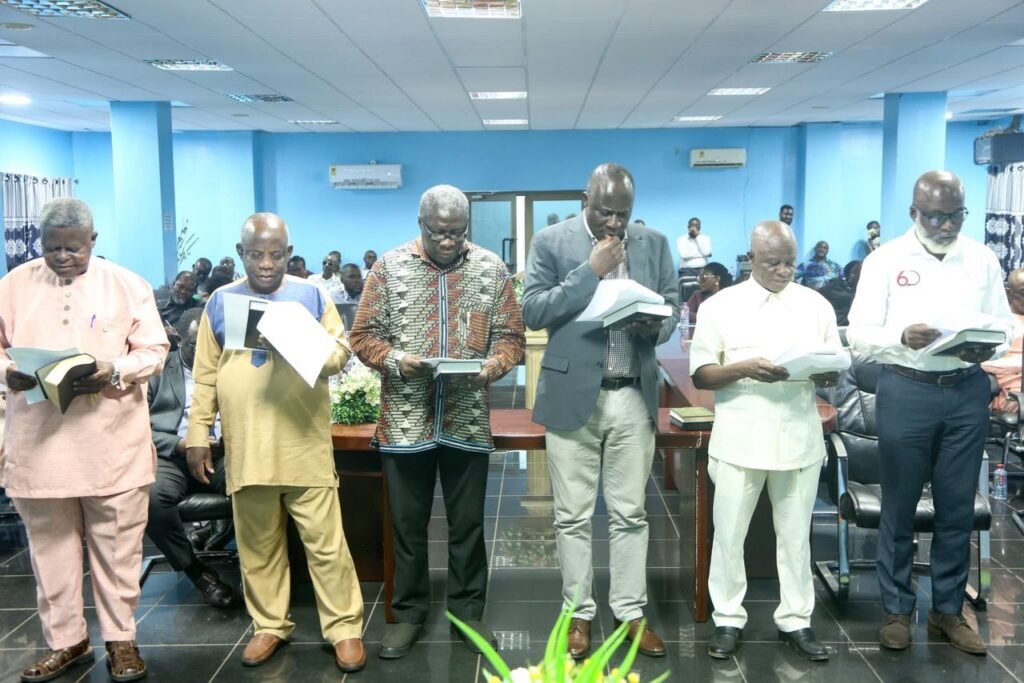The Ghana Atomic Energy Commission (GAEC) has Inducted the Management Boards of its six Research Institutes and graduate school to enhance good governance, efficiency, and sustainability.
This strategic initiative aims to strengthen institutional leadership and oversight across GAEC’s diverse scientific and technical domains.
The newly inaugurated boards include the National Nuclear Research Institute (NNRI), Radiation Protection Institute (RPI), Biotechnology and Nuclear Agriculture Research Institute (BNARI), Radiological and Medical Sciences Research Institute (RAMSRI), Nuclear Power Institute (NPI), School of Nuclear and Allied Sciences (SNAS), and the Ghana Space Science and Technology Institute (GSSTI).
Chairperson of the GAEC Governing Board, Professor Abdulai Baba Salifu emphasized that, the oaths imply solemn commitments to serve with professionalism and to safeguard the public trust vested in them.
“Ghana’s pursuit of nuclear energy represents not merely an infrastructure ambition but also an energy-security imperative.”
Professor Abdulai Baba Salifu
Prof. Salifu underscored the critical role of the newly inaugurated Institute boards in steering the strategic direction of their respective institutes, charging them as “engines of discovery and application” across key national developmentareas, including health, agriculture, energy, radiation protection, environmental safety, and space science.
He also stressed the importance of aligning the institutes’ activities with national research and innovation priorities, as well as fostering deeper collaboration with universities, industry, and government agencies.
GAEC Initiatives

The Ghana Atomic Energy Commission (GAEC) has over the years held the fort in promoting the peaceful application of nuclear science and technology in Ghana.
As the country’s leading institution in the nuclear energy sector, GAEC has been instrumental in advancing Ghana’s nuclear power agenda, which is now in Phase II of the International Atomic Energy Agency’s (IAEA) three-phased approach.
The Commission’s diverse research institutes and graduate school undoubtably play a crucial role in strengthening the scientific and technical foundations necessary to support Ghana’s energy security aspirations.
National Priorities and Initiatives

The GAEC Governing Board Chairperson further admonished the newly inducted Institute Boards to align their activities with national research and innovation priorities, including the National Research Fund, the Feed Ghana Programme, and emerging initiatives such as the Tree for Life Initiative and the National Artificial Intelligence Strategy.
Professor Salifu emphasized that Ghana’s pursuit of nuclear energy does not just reflects merely an infrastructure ambition but as well represents an energy-security imperative.
He highlighted the pivotal role of GAEC’s institutes in strengthening research, capacity building, and safety frameworks to support the country’s nuclear energy aspirations.
This focus on institutional governance and scientific leadership is crucial in ensuring the sustainable development and responsible utilization of nuclear technologies in Ghana.
According to the Director-General of GAEC, Professor Samuel Boakye Dampare, the inauguration of the Institute Boards reaffirms the Commission’s commitment to good governance, institutional efficiency, and strategic leadership.
He also praised the diverse professional expertise of the Board Members, noting that their inclusion demonstrates a strong belief in collaborative governance and evidence-based decision-making.
Professor Dampare finally urged the Board Members to work closely with their respective Institute Directors and align their actions with the Commission’s strategic objectives, stressing the importance of transparency, professionalism, and the national interest in all deliberations. This emphasis on accountability and alignment with GAEC’s overarching goals underscores the institution’s commitment to responsible and effective governance.
Contributions to National Development

The induction of the seven Institute Management Boards marks a significant milestone in GAEC’s efforts to strengthen institutional governance and scientific leadership.
By empowering these specialized entities, the Commission seeks to enhance its contributions to national development through the innovative application of nuclear science and technology across various sectors, including energy, health, agriculture, and environmental protection.
This strategic move positions GAEC as a driving force in Ghana’s pursuit of sustainable and technologically advanced solutions to pressing challenges.
READ ALSO : Ghana Stock Exchange Caps October with 316% Surge in Trading Volume























